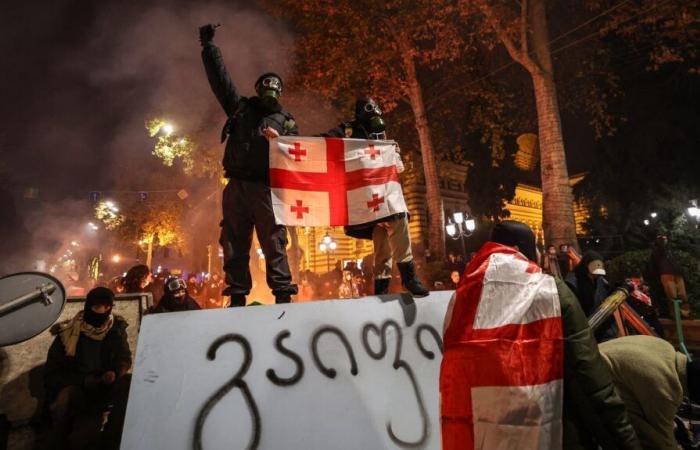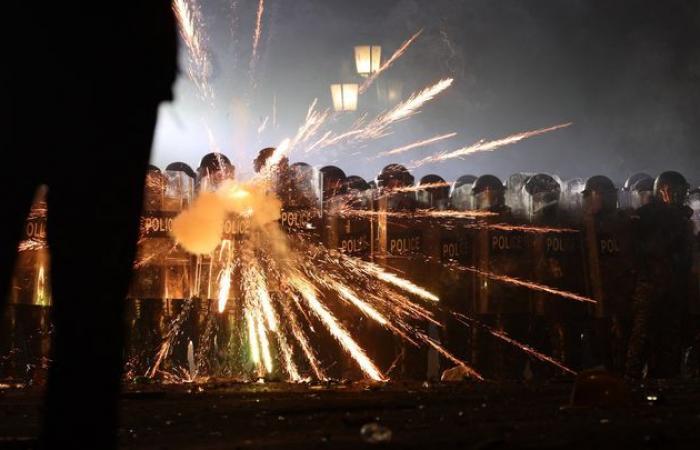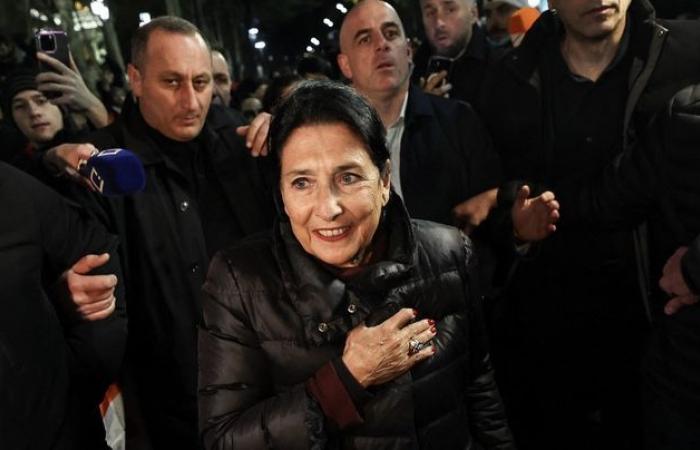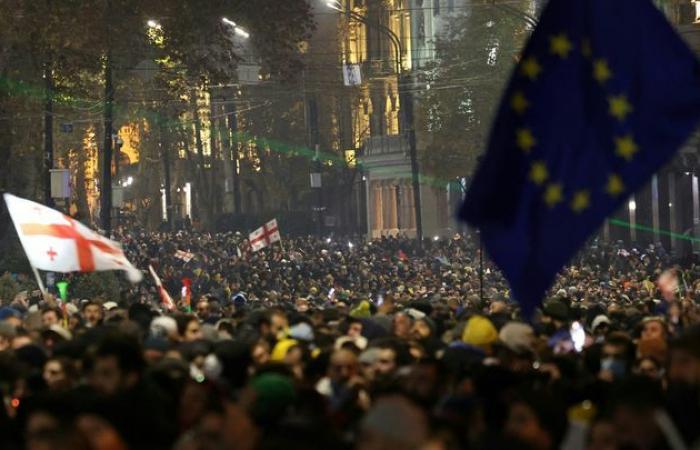For the third evening in a row, Georgians demonstrated on Saturday against the government's decision to postpone discussions on Georgia's accession to the EU.
Tbilisi in turmoil. For the third consecutive evening, thousands of demonstrators took to the streets of the Georgian capital on Saturday November 30. Popular anger exploded after the government decision, taken on Thursday, to postpone discussions on Georgia's accession to the European Union until 2028.
The country obtained candidate status in 2023, before seeing the process frozen by Brussels a year later due to the adoption of a controversial law on “foreign influence”. “We will continue to move towards the European Union, but we will not let anyone keep us in a situation of permanent blackmail and manipulation”Georgian Prime Minister Irakli Kobakhidze said at a press conference.

This announcement came after the European Parliament adopted a resolution rejecting the results of the legislative elections, which were held at the end of October. They saw the triumph once again of Georgian Dream, the party in power since 2012, accused of pro-Russian authoritarian drift by its detractors. The vote was marred by irregularities, according to many local and international observers. Brussels therefore demanded the holding of new elections and the imposition of European sanctions against, among others, the head of the Georgian government.
Since the elections, the climate in the country has been electric. The head of state, Salomé Zourabichvili, breaking with the government, has spearheaded the popular mobilization. This pro-European, who has limited powers, estimated Friday evening that “the resistance movement has begun” and fervently boycotts the results of the legislative elections, which she sought to have annulled by the Constitutional Court. “No one outside Georgia, among our democratic partners, recognized the elections”recalled Saturday Salomé Zourabichvili, who presents herself as the “the country’s only legitimate institution”.
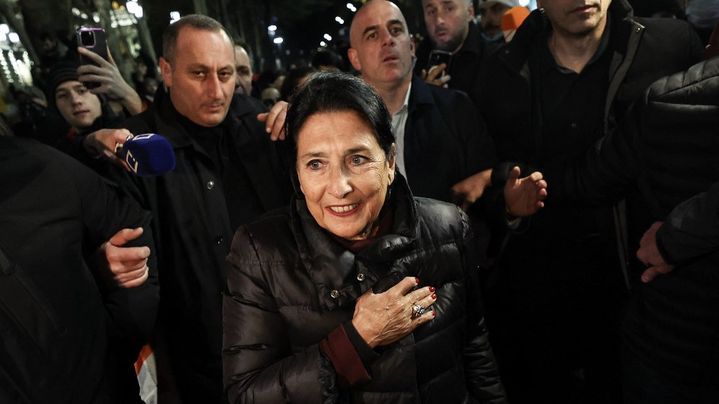

The newly elected Parliament announced that it would choose the next head of state, for a five-year term, on December 14. “As long as there are no new elections and a Parliament that elects a new president according to new rules, my mandate will continue”warned the former French diplomat in an interview with AFP. She announced that she had set up a “conseil national” composed of opposition parties and representatives of civil society, which will ensure “stability in this country”. “Do business with us, we represent the people of Georgia”launched the president.
Pro-European elected officials are also largely opposed to the results of the legislative elections. In mid-November, the chairman of the Georgian Election Commission was sprayed with black paint by a member of the opposition while announcing the results of the election. Opponents of the majority have also given up their chance to sit in Parliament.
Beyond elected officials, hundreds of civil servants, notably from the Ministries of Foreign Affairs, Defense and Education, as well as judges, have published joint statements to denounce the choice to suspend Georgia's membership in the EU. Some 160 Georgian diplomats criticized the decision, saying it was unconstitutional and led to “in international isolation” of the country. Many Georgian ambassadors also resigned in protest.
Civil society is not left out: demonstrations have broken out in many cities and more than a hundred schools and universities have suspended their activities in protest. The mobilization is forcefully repressed by the regime. According to the Georgian Interior Ministry, 107 people were arrested on Friday for “disobedience to the police” and “vandalism” and ten police officers were injured. Riot police used tear gas and water cannons against demonstrators, who for their part threw eggs and launched fireworks, AFP journalists noted.
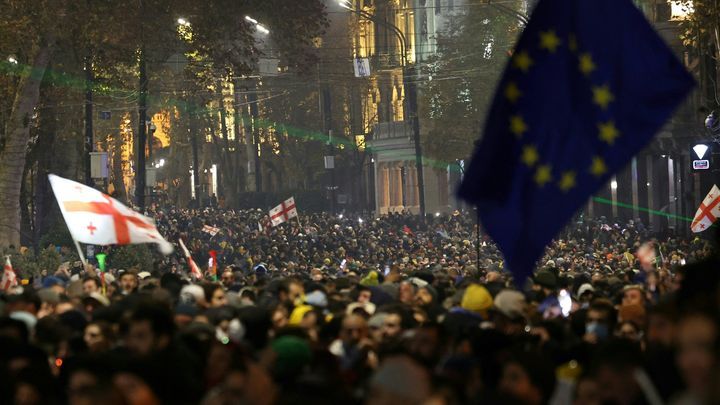

The Organization for Security and Cooperation in Europe (OSCE) denounced “disproportionate and indiscriminate use of force” by the police, which according to them constitutes “a serious violation of freedom of assembly”.
“It is clear that the use of violence against peaceful protesters is not acceptable and that the Georgian government must respect the will of the people”reacted on Sunday new head of European diplomacy, Kaja Kallas. France called on Friday to “respect for the right to demonstrate peacefully” and underlined “support European aspirations” from Georgia, “who must not be betrayed”. According to a poll by the National Democratic Institute, an NGO, 79% of Georgians support their country's membership in the EU.

